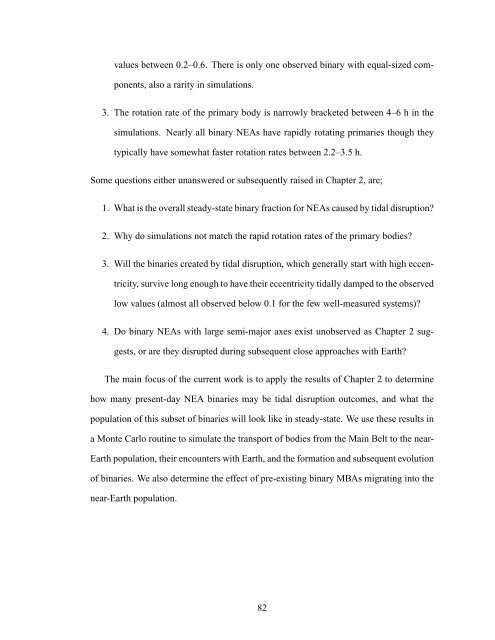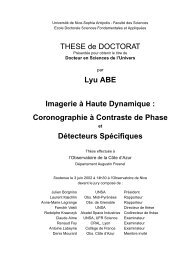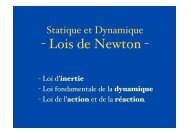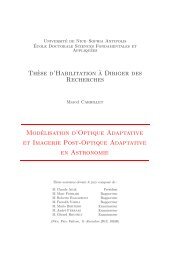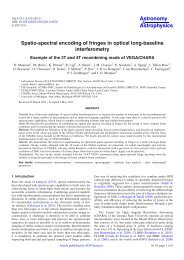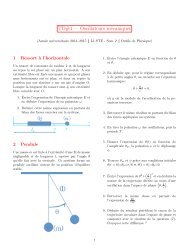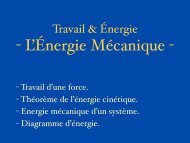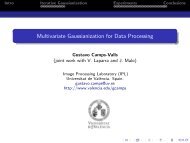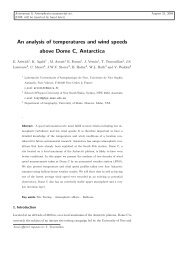Forming Binary Near-Earth Asteroids From Tidal Disruptions
Forming Binary Near-Earth Asteroids From Tidal Disruptions
Forming Binary Near-Earth Asteroids From Tidal Disruptions
You also want an ePaper? Increase the reach of your titles
YUMPU automatically turns print PDFs into web optimized ePapers that Google loves.
values between 0.2–0.6. There is only one observed binary with equal-sized components,also a rarity in simulations.3. The rotation rate of the primary body is narrowly bracketed between 4–6 h in thesimulations. <strong>Near</strong>ly all binary NEAs have rapidly rotating primaries though theytypically have somewhat faster rotation rates between 2.2–3.5 h.Some questions either unanswered or subsequently raised in Chapter 2, are;1. What is the overall steady-state binary fraction for NEAs caused by tidal disruption?2. Why do simulations not match the rapid rotation rates of the primary bodies?3. Will the binaries created by tidal disruption, which generally start with high eccentricity,survive long enough to have their eccentricity tidally damped to the observedlow values (almost all observed below 0.1 for the few well-measured systems)?4. Do binary NEAs with large semi-major axes exist unobserved as Chapter 2 suggests,or are they disrupted during subsequent close approaches with <strong>Earth</strong>?The main focus of the current work is to apply the results of Chapter 2 to determinehow many present-day NEA binaries may be tidal disruption outcomes, and what thepopulation of this subset of binaries will look like in steady-state. We use these results ina Monte Carlo routine to simulate the transport of bodies from the Main Belt to the near-<strong>Earth</strong> population, their encounters with <strong>Earth</strong>, and the formation and subsequent evolutionof binaries. We also determine the effect of pre-existing binary MBAs migrating into thenear-<strong>Earth</strong> population.82


